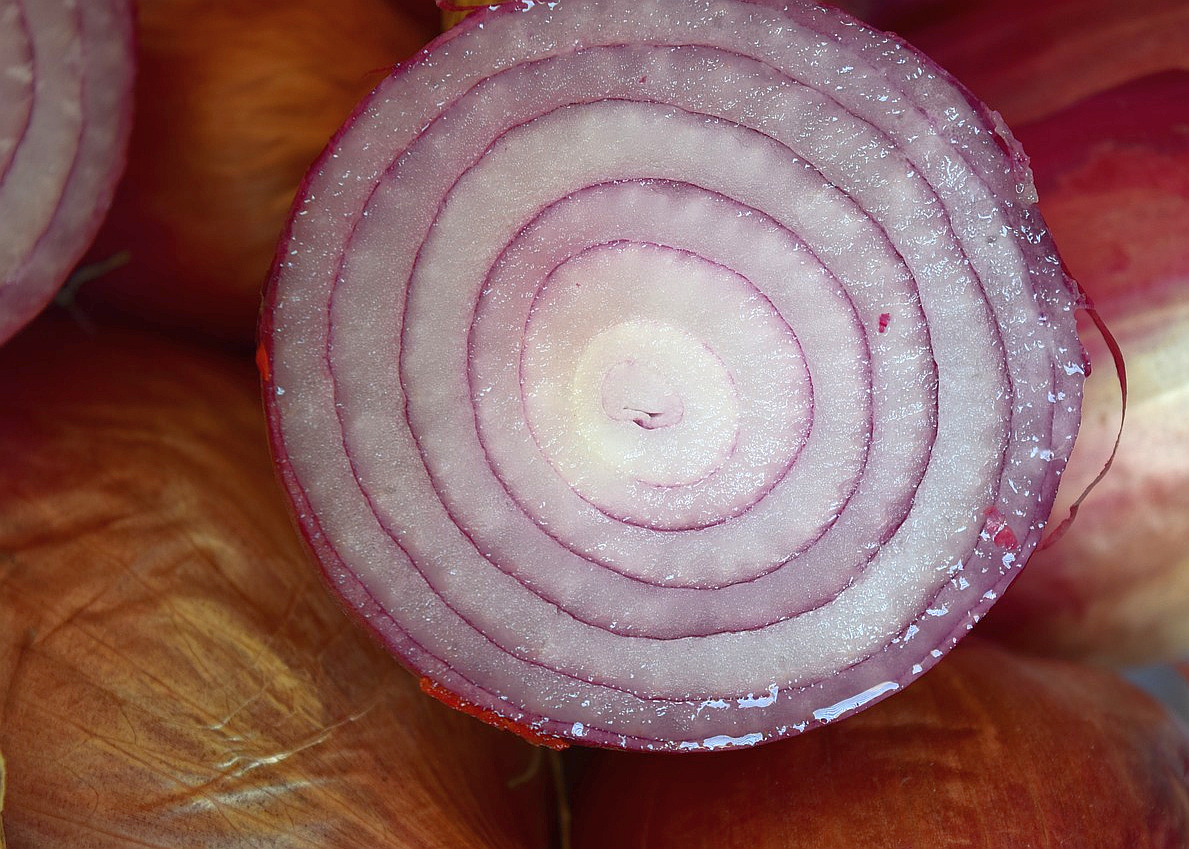
You are about to prepare a delicious meal—a meal that requires you to slice or chop onions. Do you dread the task? The act of chopping onions is simple enough, but you know already chopping onions makes you cry. Why? What can you do to avoid it? Let’s find out.
Chopping Onions Makes You Cry
The chemical that comes from preparing onions is called a lachrymator. That word lachrymator is simply defined as a chemical that irritates the eyes, causing tears to flow. In fact, a purely gaseous lachrymator may be called “tear-gas.” Yes, onions produce tear-gas: specifically, (Z)-propanethial-S-oxide (PTSO).
Onions of themselves don’t cause a problem. It is the slicing and chopping of them, the damage inflicted to the cell walls, that causes the problem. This damage causes enzymes (within the onion) called alliinases to react with amino acid sulfoxides (also present within the onion). The chemical structure of the resulting PTSO is illustrated in Figure 1.
Explaining the Name
The (Z)- means this substance is a zwitterion—that is, a double ion.1 Ordinarily electrically neutral, this ion, although possessing a net charge of zero, exhibits a positive charge and a negative charge.
The propane portion of the name points to its possessing a carbon chain similar to that of a propane molecule, consisting of a chain of three carbon atoms (Figure 2). The “thial” means it is a kind of aldehyde (the –al part), in which the oxygen atom (O) is replaced by a sulfur atom (S or thio-).2
What Causes the Irritation
“OK, this is the chemical structure of the lachrymator, so why does it cause my eyes to tear?” Upon reaching the moist eye, this substance hydrolyzes, or reacts with water, to produce the irritating substance “sulphenic acid.” The acid stimulates nerve endings that lead to tear formation—a built-in body-protective mechanism. Persons who suffer from dry-eye are especially prone to suffering from the slicing and chopping of onions.
What Can I Do?
What tactics can help reduce the difficulty with tearing from slicing and chopping onions?
- Slice and chop fast
- Wear goggles
- Use a very sharp knife—this releases less irritant
- Chill onions before slicing to slow the chemical reaction
There are other suggestions, enumerated in an article on cooking with onions, by the University of Nebraska, Lincoln. These include burning a candle (of all things) and holding a piece of white bread in the teeth.
The thing not to do is to avoid cooking with these delicious and healthful bulbs simply because you do not wish to be called a “cry baby.”
1 For further discussion of zwitterions, see What is a Zwitterion?
2 Thio- plus -al gives “thial.”
Note: You might also enjoy Cooking Onions: Flavor Chemistry Changes